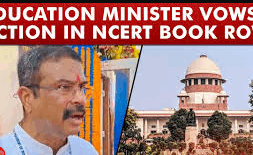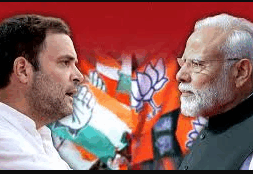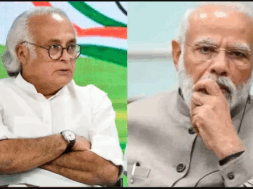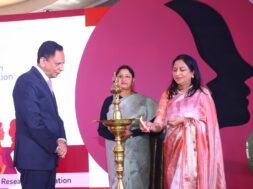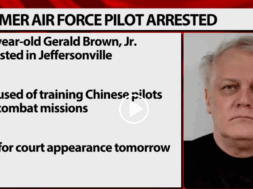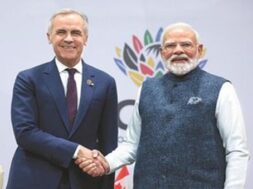
Bilkis Bano Review Petition: Justice Bela Trivedi Recuses Herself, Case to go to Another Bench
Manas Dasgupta
NEW DELHI, Dec 13: Supreme Court judge Justice Bela M. Trivedi, who hails from Gujarat, on Tuesday recused herself from hearing a writ petition filed by the 2002 Gujarat riots gang rape victim Bilkis Bano challenging the decision of the Gujarat government prematurely releasing 11 convicts sentenced to life imprisonment for gang rape and murder of seven members of her family.
Justice Trivedi was part of the bench, which also included Justice Ajay Rastogi, to hear the two separate petitions filed by Bilkis Bano challenging the early release of the convicts by the Gujarat government on August 15, saying the state government passed a mechanical order completely ignoring the requirement of law as laid down by the Supreme Court.
As soon as the bench of justices Ajay Rastogi and Bela M Trivedi took up the matter for hearing, Justice Rastogi said his sister judge would not like to hear the case. The matter was hence adjourned, and will have to be listed in a new bench. “List the matter before a bench in which one of us is not a member”, the bench headed by Justice Rastogi ordered. The bench did not specify any reason for the recusal of justice Trivedi.
Justice Trivedi who hails from Gujarat had started her judicial career in the district judiciary in 1995. Justice Trivedi had worked in different posts like Registrar – Vigilance in the High Court, Law Secretary in the Gujarat government, CBI court judge, Special Judge, etc. She was elevated as a Gujarat High Court judge in February 2011.
A review petition by Bilkis Bano was also listed on Tuesday for a decision via circulation by a Bench led by Justice Ajay Rastogi. Ms. Bano has sought a review of a Supreme Court judgment of May 2022 which had paved the way for the Gujarat government to consider and release the 11 convicts under the State’s Premature Release Policy of 1992.
In her writ petition, Ms. Bano, through advocate Shobha Gupta, has argued that the early release of the convicts amounted to a violation of her fundamental right to life. She has said the remission policy of the State of Maharashtra, where the trial of her case had taken place and the judgement delivered, and not of Gujarat would have governed the case.
Others like CPI (M) leader Subhashini Ali and Trinamool Congress leader Mahua Moitra have also challenged the early release of the convicts. Their petitions were last heard by Justice Rastogi’s Bench on October 18. The court had then given petitioners time to respond to a Gujarat government affidavit which showed that the Special Judge and the CBI in Mumbai had opposed the premature release of the 11 convicts.
The affidavit by the State of Gujarat had revealed that while the Superintendent of Police, CBI, Special Crime Branch, Mumbai and the Special Judge (CBI) of Greater Bombay opposed the premature release, all the authorities in Gujarat and the Home Ministry recommended their release.
“All the prisoners have completed 14 plus years in the prison under life imprisonment and opinions of the authorities concerned have been obtained as per the premature release policy of 1992 and submitted to the Ministry of Home Affairs vide letter dated June 28, 2022 and sought the approval of the Government of India. The Government of India conveyed the concurrence/approval of the Central government under Section 435 of the Code of Criminal Procedure for premature release of 11 prisoners in a letter on July 11, 2022,” the 57-page affidavit had said.
The State had clarified that, contrary to popular perceptions, the early release of the 11 convicts was not as per a circular allowing remission to prisoners as part of the celebration of ‘Azadi ka Amrit Mahotsav’ but it was under the 1992 Premature Release Policy of the state government. The remission was granted on August 10, 2022.
Solicitor General Tushar Mehta, for Gujarat, and advocate Rishi Malhotra, for the accused, had both challenged the locus standi of “third party petitioners” to challenge the premature release”. They had dubbed the petitioners as “interlopers”.
Bilkis Bano was 21 and five-month pregnant when she was gang raped during the 2002 Gujarat riots that followed the Godhra train burning incident. Her three-year-old daughter was also among the seven members of her family who were killed.
“The decision to once again stand up and knock on the doors of justice was not easy for me. For a long time, after the men who destroyed my entire family and my life were released, I was simply numb. I was paralysed with shock and with fear for my children, my daughters, and above all, paralysed by loss of hope,” she had said at the time of filing of the petitions.
The investigation of her case was handed over to the CBI and the trial was transferred to a Maharashtra court by the Supreme Court. A special CBI court in Mumbai had on January 21, 2008 sentenced the 11 to life imprisonment. Their conviction was later upheld by the Bombay High Court and the Supreme Court.
However, in October, the Gujarat government told the Supreme Court that it had the Centre’s approval for the release of the 11 convicts and also cited their “good behaviour.” But contrary to the state government’s claims of their “good behaviour,” FIRs and police complaints show that the 11 convicts were accused of threatening and harassing witnesses while out on parole. Between 2017-2021, at least four witnesses in the case registered complaints and FIRs against the convicts.



